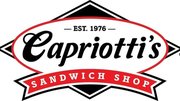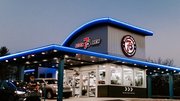Article
Opinion: Great expectations in customer service
Penn Station president Craig Dunway discusses the issues that make customer service a win or lose proposition.

January 6, 2011
By Craig Dunaway, president, Penn Station Inc.
I will admit that I am somewhat of a coffee snob. In reality, I don’t much care for the taste of coffee; however, I like the buzz from a good espresso.
I stop at the same coffee shop every morning during my 17-minute commute to the office. On one recent trip, I was struck by several events that, while certainly not monumental, left me wondering why I visit this coffee shop in the first place. Perhaps it’s attributable to the flavor and taste of the extra hot, extra shot latte, because it’s often not the customer service.
About a month ago, I loaded $100 on a gift card I bought for myself from this particular retailer. Less than a month later, I was informed by the person at the counter that I was 10 cents short for my $3.69 hot drink. I realized then that I had spent more than $100 in one month at the coffee shop that I find doesn’t offer great customer service in the first place. I gave them the card, gave them a dime, and then proceeded to load another $100 on my card like any good foot soldier. Did I mention I walked out to my car to get a dime out of the change holder?
Now, what’s so bad about their customer service?
About once every two to three weeks, I arrive after the predetermined opening time, only to find the front door still locked. The employees are inside and they appear busy, but they haven’t taken the time to unlock the front door that will permit patrons to enter. Not good.
On these same mornings, I often pick up the local and national papers the coffee shop sells that have been left at the front door. I typically carry these to their proper places, open the plastic wrap, and place them on the shelves for customers to buy throughout their day.
After I walk in, at least two times a week, I say to the employees: “Your open sign isn’t turned on.” They generally thank me for noticing, although I somewhat suspect they feel it’s none of my business if they’ve failed to turn on the sign in the first place. This leads me to ask: If they don’t care, why should I?
Does this location not have an opening checklist to help the crew prepare for the day? If they do, it’s not being followed.
The drink I always order is a three shot latte. What’s odd about this transaction is apparently the three shots must be made in two-shot increments, all the while being dispensed from the espresso machine by a single shot. This means four shots are separately dispensed into two shot glasses. So each day, I watch as they make two two-shot drinks and proceed to allow one of the shots to run into a drain because they do not put the shot glass containers under the dispensers for each shot. I get my three, but the metropolitan sewer district gets the fourth.
Sometimes, I’m giddy with joy because a few of the employees who know me as a regular ask if I want the “spare” shot. It’s typically an hourly employee who asks me this — and they do it covertly. I’ve been told the new manager gets annoyed with giving away something like this to a customer (even one like me who spends, on average, more than $100 a month) so, it’s rarer than it used to be. I was told this by a former employee, who said that after she departed she had always given me the extra shot. Apparently, it’s better to wash the evidence, the extra shot and the superb customer service down the drain.
I was in Louisville, Ky., recently to visit my parents and family. I had about an hour to kill so I decided to stop by one of our restaurants. I arrived 10 minutes before the scheduled opening time and waited in my car for a few minutes. I wanted to show up early to see how the crew might respond (assuming some of them didn’t know me) to a customer standing at the door in 20-degree weather with a backpack and no coat. A woman was cleaning the counter and we made eye contact. We were less than 20 feet away. However, and to my disappointment, rather than walk over and open the locked door for me, she turned and walked away. I was somewhere between mad and hurt.
I wanted to introduce myself as the guy whose name was at the bottom right corner of her paycheck. However, that seemed arrogant and condescending, so I just thanked the employee who did come over to open the door a few minutes later. I made sure to let the operations manager know about the incident so they could ensure better customer service in the future. More importantly, I wondered how many times on a daily basis our company has a chance to “wow” guests with great customer service, only to wind up supporting the mediocre expectations we’ve come to expect as consumers.
Our vice president of operations had somewhat of an epiphany a few years ago and announced at a planning meeting that stellar customer service was going to be the focus of our brand over the next few years. We discussed exceeding expectations and going above and beyond the call of duty for the guests who spend their hard earned money at Penn Station. I was thrilled with his prognostication and believe we have made huge strides in what I hope is exceeding customer expectations.
To deliver on our VP's initiative, our operations department redesigned and refocused our evaluation efforts in regard to customer service priorities. We asked ourselves: How would we like to be treated if we were the guest? Then, we reformated our evaluation process to determine how well franchisee and corporate locations are satisfying and exceeding those customer service priorities. Customer complaints have decreased, and the positive feedback we've gotten has gone up.
Do we still disappoint? Sure, but when we do disappoint guests, our franchisees and hardworking general managers respond and take care of the problem in a timely and diligent manner.
As I was driving to my parents’ house, I pondered that maybe it isn’t customer service that has gone bad. Maybe I’m expecting too much from myself, our crew, the local coffee shop, and all the other purveyors of goods and services where I spend my money each month.
So, the next time I walk into the coffee shop, and I badly want to tell them for the third time in a week their open sign isn’t on, or I carry in the bundle of papers that they’ve left leaning against the door, or I remove the trash can from holding the restroom door open and put it in its proper place, I will smile instead, nod, and not speak until someone demands from me either a ‘hello’ or ‘have a nice day.’
In my opinion, it’s most often not the big issues that make customers mad or cause them to not come back. Rather, it’s the little things (in my case, a dime or a wasted shot of espresso) that cause the customer dissatisfaction. I’ve taken this to heart in my own company to ensure that we focus on the details instead of getting caught up in the things customers don’t see as important.












